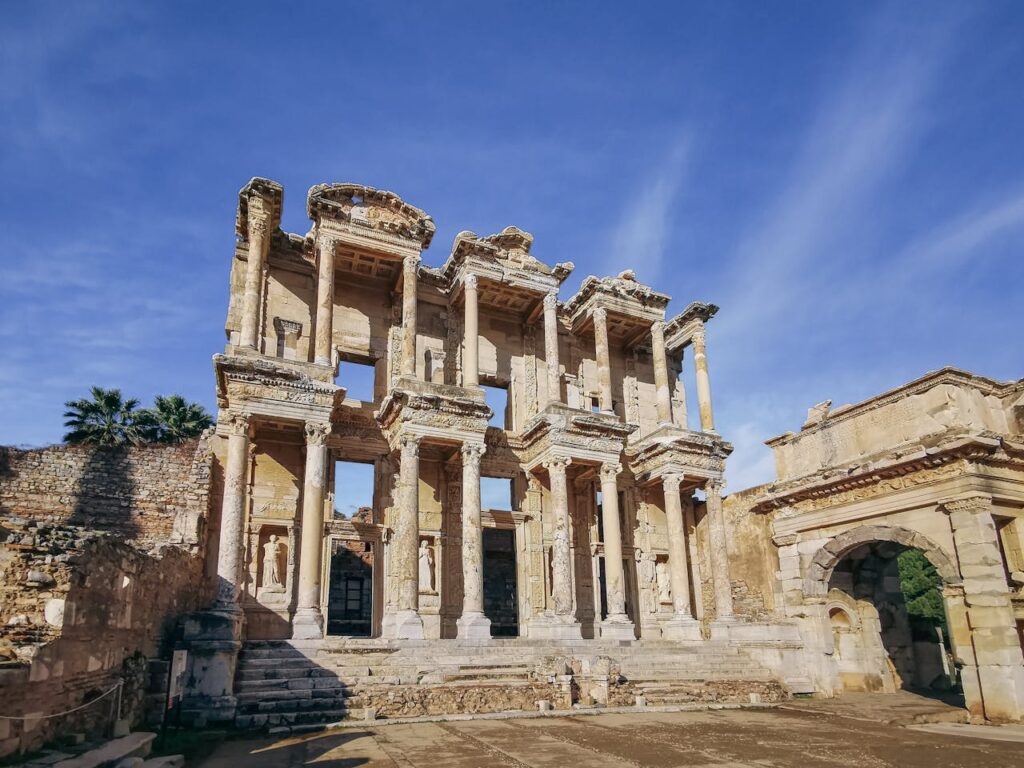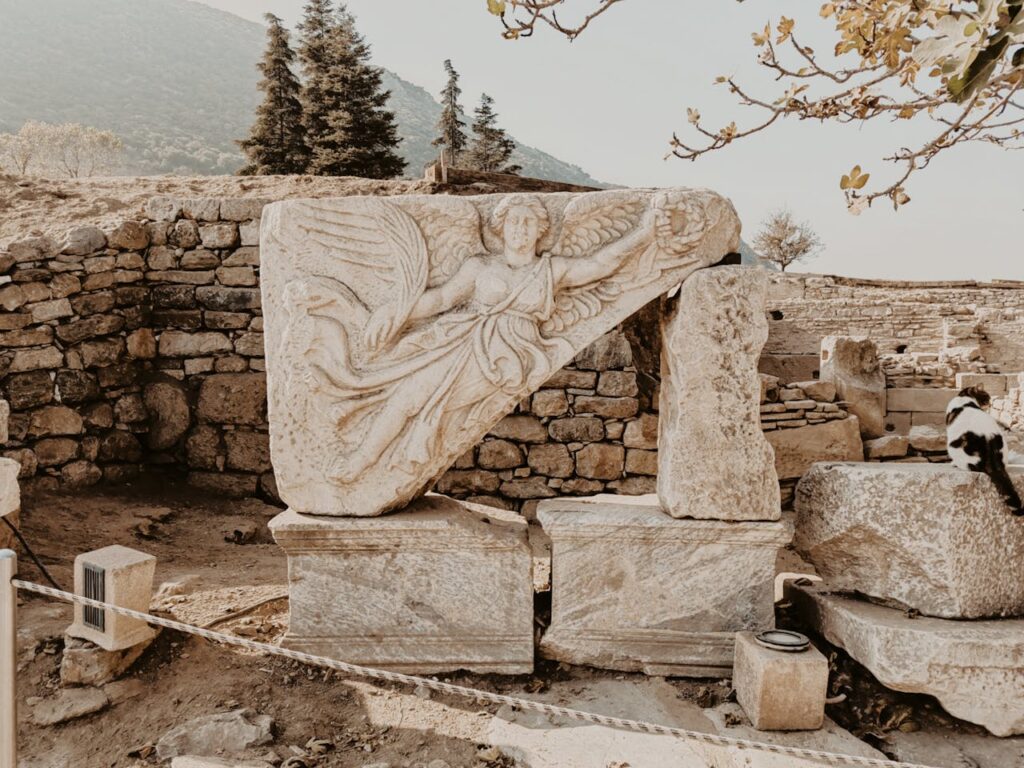Nestled in the heart of Turkey’s Aegean region, the ancient city of Ephesus is a mesmerizing window into the past, offering a unique glimpse into one of the most important cities of the classical world. Walking through the ruins of Ephesus is like stepping back in time, where the echoes of Roman chariots, bustling markets, and grand ceremonies still linger in the air. Whether you are a history enthusiast, a lover of architecture, or simply someone seeking a profound cultural experience, visiting Ephesus is an absolute must.

A Journey Through Time: The Historical Significance of Ephesus
Ephesus was once a thriving metropolis, a hub of commerce, politics, and religion in the ancient world. Founded in the 10th century BCE, it rose to prominence under the Roman Empire, becoming one of the largest cities in the Mediterranean. Ephesus was home to the Temple of Artemis, one of the Seven Wonders of the Ancient World, and served as a crucial center for early Christianity, where the Apostle Paul preached and the Virgin Mary is believed to have spent her final days.
The city’s strategic location along the Aegean coast made it a vital trade route, connecting the East and West. Its prosperity is evident in the grandeur of its public buildings, including the famous Library of Celsus, the majestic Great Theatre, and the intricate terraced houses that once belonged to the city’s elite. Ephesus was not just a city; it was a living testament to the grandeur of ancient civilization, and its ruins today offer unparalleled insights into the past.
Why Ephesus Should Be on Your Travel Itinerary
- A Living Museum of Ancient Architecture:
Ephesus is one of the best-preserved ancient cities in the world, and walking through its marble streets is like wandering through a vast open-air museum. The Library of Celsus, with its stunning facade, is one of the most photographed landmarks, embodying the architectural sophistication of the Roman Empire. The Great Theatre, which once held 25,000 spectators, still stands as a testament to the city’s cultural and political significance. Every corner of Ephesus reveals another piece of history, from the elegant mosaics of the terraced houses to the towering columns of the Temple of Hadrian. - The Connection to Early Christianity:
For those interested in religious history, Ephesus holds special significance. It is closely associated with the spread of Christianity in the Roman world. The city is mentioned multiple times in the Bible, and it is believed that the Apostle Paul wrote his Epistle to the Ephesians here. The nearby House of the Virgin Mary, a pilgrimage site for both Christians and Muslims, adds another layer of spiritual importance to the visit. - Experience the Power of the Ancient World:
Standing amidst the ruins of Ephesus, you can’t help but feel the power and influence that this city once held. The monumental scale of the structures, the intricate details of the carvings, and the sheer size of the city all speak to the grandeur of the ancient world. It’s a humbling experience that offers perspective on the achievements of those who came before us. - A Photogenic Destination:
The beauty of Ephesus is not just in its history, but also in its breathtaking scenery. Surrounded by rolling hills and lush landscapes, the site offers plenty of opportunities for stunning photographs. The golden light of the Aegean sun casts a warm glow over the ancient stones, making it a photographer’s paradise. Whether you’re capturing the intricate details of a mosaic or the sweeping view of the ruins against the sky, Ephesus is sure to fill your camera with unforgettable images.
Practical Tips for Visiting Ephesus
- Time Your Visit: To fully appreciate Ephesus, plan to spend at least half a day exploring the site. Arrive early in the morning or late in the afternoon to avoid the crowds and the midday heat, especially during the summer months.
- Hire a Guide: While it’s possible to explore Ephesus on your own, hiring a knowledgeable guide can greatly enhance your experience. They can provide valuable insights into the history, architecture, and significance of the various sites within Ephesus.
- Wear Comfortable Shoes: Ephesus is a sprawling site with uneven terrain, so comfortable walking shoes are essential. Also, bring water and sun protection, as the site offers little shade.
- Combine with Nearby Attractions: While in the area, consider visiting other nearby historical sites, such as the House of the Virgin Mary, the ancient city of Priene, and the Temple of Artemis in Selçuk. These sites complement the experience of Ephesus and offer a more comprehensive understanding of the region’s rich history.
Final Thoughts
Visiting the ancient city of Ephesus is more than just a trip to a historical site; it’s a journey through time that connects you with the roots of Western civilization. The ruins of Ephesus are a vivid reminder of the grandeur, complexity, and influence of the ancient world. Whether you are tracing the footsteps of early Christians, marveling at Roman engineering, or simply soaking in the beauty of the past, Ephesus is a destination that should not be missed.
Ephesus is not just a place to visit; it’s a place to experience, to learn, and to reflect. Its enduring legacy and timeless beauty make it one of the most important and rewarding travel destinations in the world. Don’t miss the chance to walk through history and discover the wonders of ancient Ephesus.



